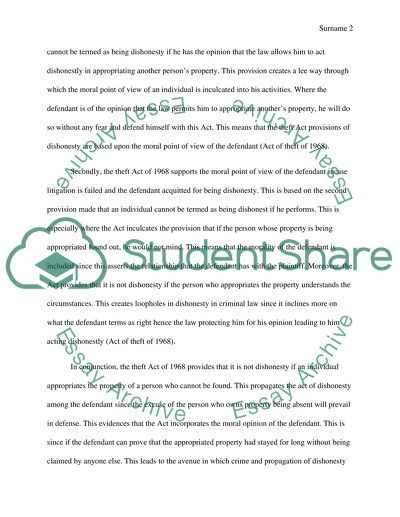Cite this document
(“Dishonesty in Criminal Law: Analyzing the Offence of theft Essay”, n.d.)
Retrieved from https://studentshare.org/law/1395122-dishonesty-in-criminal-law-analyzing-the-offence-of-theft
Retrieved from https://studentshare.org/law/1395122-dishonesty-in-criminal-law-analyzing-the-offence-of-theft
(Dishonesty in Criminal Law: Analyzing the Offence of Theft Essay)
https://studentshare.org/law/1395122-dishonesty-in-criminal-law-analyzing-the-offence-of-theft.
https://studentshare.org/law/1395122-dishonesty-in-criminal-law-analyzing-the-offence-of-theft.
“Dishonesty in Criminal Law: Analyzing the Offence of Theft Essay”, n.d. https://studentshare.org/law/1395122-dishonesty-in-criminal-law-analyzing-the-offence-of-theft.


